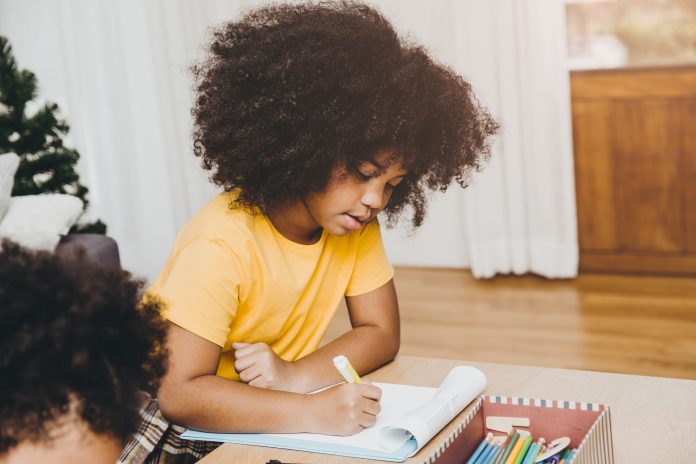A study, published by Elsevier, finds that Black pupils aged 9-10 years old are 3.5 times more likely to be given detention or suspended – in comparison to their white peers
When it comes to Black children in the classroom, racism from the perspective of a teacher can influence how these pupils are perceived. While Black adults face a set of stereotypes that define and limit how they are seen and understood, there is a wide pool of research that explores this ongoing power dynamic.
When it comes to children, there is less definitive research available. In March, a UK-based study used the data of seven million children to unpack how autism impacts children in the education system. The team found that Black kids were most likely to be autistic, but least likely to have a diagnosis. The absence of behavioural information coupled with assumptions about anger and aggression led to increased punitive measures.
At the age of 9 or 10, a child is forming their perspective of themselves and the world around them. The relationship in a classroom, with a figure of authority, can define how they see themselves for a long time.
‘Anger bias can have huge consequences’
Dr Amy G. Halberstadt, PhD, a professor of psychology at North Carolina State University, said: “This anger bias can have huge consequences by increasing Black children’s experience of not being ‘seen’ or understood by their teachers and then feeling like school is not for them.
“It might also lead to Black children being disciplined unfairly and suspended more often from school, which can have long-term ramifications.”
Her study was the first to examine the perception of anger in Black elementary and middle-school children. But the phenomena of being perceived as angry or disruptive is not exclusive to the US. Halima Jibril, Founding Editor of Ashamed Magazine, wrote extensively about her experience of being black in the UK-school system.
She said: “In school, my sister was described as argumentative and mean, while teachers commented on how kind and agreeable I was.
“I learned rather quickly when I started school that I had to flatten myself. Teachers would constantly say the same thing to me: ‘Halima you’re too loud! Too this! Too that! Too much!'”
Study involved 11,875 students between 9-10 years old
In new research, a team at the Medical University of South Carolina looked at the punishment of elementary school children. They accounted for socio-economic differences, essentially subtracting class factors, and still found that elementary school-age Black children are 3.5 times more likely to receive detention or suspension than white peers.
The study consisted of 11,875 elementary school students aged 9 to 10-years-old, who were part of the Adolescent Brain Cognitive Development (ABCD) Study – a 10-year longitudinal study of brain development.
Children were recruited across 21 sites in the US, with participants closely resembling the country’s geographic, demographic and socioeconomic makeup.
“Disciplinary practices such as detention and suspension can lead to a number of academic, social and psychological issues,” said Matthew Fadus, MD, a Child and Adolescent Psychiatry Fellow at Massachusetts General Hospital in Boston, MA, USA.
“There is extensive evidence in the United States to indicate that Black children and children from lower-income families are disproportionally affected by these practices.”
So, what does this mean for classroom dynamics in the US?
The authors observe that detentions and suspensions disproportionately affect children of lower-income families and families with single caregivers – they can further perpetuate a cycle of poverty and limited academic achievement.
They say that administrators and educators now need to think about their biases in disciplinary practices – starting with a healthy discussion of race and discipline in American classrooms.
a long history of systemic racism in the US may be contributing to our findings.
Co-author, Brittany Bryant, DSW, LISW-CP, Assistant Professor at the Medical University of South Carolina in Charleston, SC, USA said: “What we have found suggests there must be other factors influencing disciplinary actions among these children. Given that we were able to control for so many variables in this study, it is likely that individual biases and a long history of systemic racism in the US may be contributing to our findings.”











